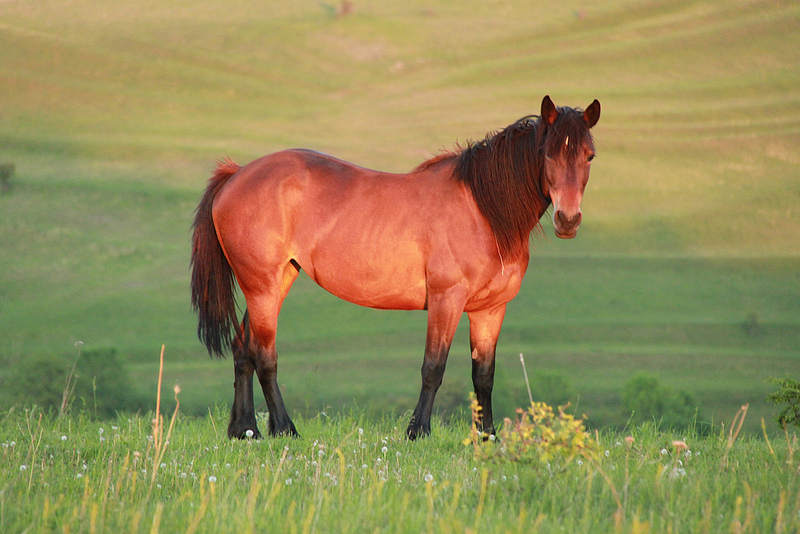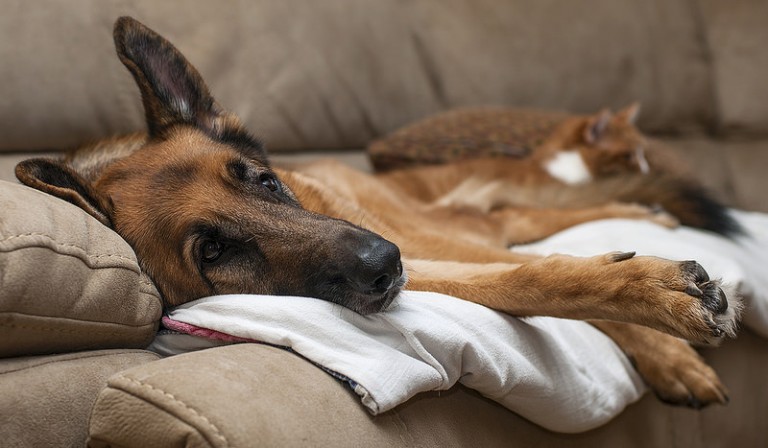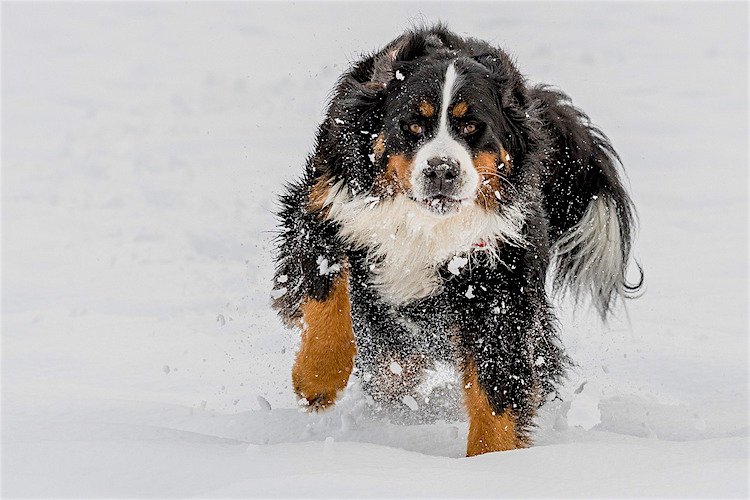Essential Things to Consider When Getting a Horse
Not your average pet, horses are majestic creatures. Make sure you do your research before taking the plunge and buying one.


Don’t leave your pet’s safety to chance
Sign up for Petful recall alerts today.

Things to Consider When Getting a Horse
For many, owning a horse is a childhood dream, and some are lucky enough to make that dream a reality. Now that you’re an adult, you might still want to own a horse, but caring for one can feel overwhelming if you’re not prepared.
Horses require a tremendous amount of care, knowledge, and attention to ensure they survive and thrive. If you’re serious about getting a horse, here are five key factors you need to consider:
- Time Commitment: Horses need daily care, including feeding, grooming, and exercise. Make sure you have enough time to dedicate to their well-being.
- Space and Shelter: You’ll need enough land and appropriate shelter for your horse. This includes access to fresh water, a stable, and a pasture for grazing.
- Cost: Owning a horse comes with ongoing expenses. Consider the costs for feed, veterinary care, farrier visits, and equipment like saddles and blankets.
- Health and Veterinary Care: Regular check-ups and vaccinations are essential. You’ll need to have a trusted veterinarian and a plan for emergency care.
- Experience and Knowledge: Horses are complex animals. If you’re new to horse ownership, it’s crucial to seek training and education to understand their needs.
The Importance of Pre-Purchase Exams
When getting a horse, one of the most important steps before finalizing the purchase is conducting a pre-purchase exam. This exam, performed by a qualified veterinarian, provides essential insights into the horse’s health and suitability for your needs.
Here’s why a pre-purchase exam is crucial:
- Health Assessment: The vet will check for any underlying health issues, such as lameness, respiratory problems, or hidden injuries.
- Temperament Evaluation: A pre-purchase exam also gives insight into the horse’s behavior and how well it may adapt to your environment.
- Future Health Risks: The exam helps identify potential long-term health problems, saving you from future surprises.
By investing in a pre-purchase exam, you can ensure that the horse is a good fit for your lifestyle and intended activities. Consulting your vet before getting a horse is essential to making an informed decision and safeguarding your investment.
To better understand what to look for during a pre-purchase exam, check out this video that walks you through a thorough health evaluation:
Cost of Owning a Horse
The first thing to consider when getting a horse? Your finances. A horse is not financially self-sustaining — you’ll be responsible for providing most, if not all, of the feed and care.
It’s not just about the initial cost of buying a horse; ownership comes with ongoing expenses that need to be factored in for the long term. Here’s what you can expect:
- Food: Horses require specialized feed, hay, and supplements to stay healthy.
- Shelter: You’ll need a stable or other suitable housing to keep your horse safe from weather conditions.
- Water: Constant access to fresh water is essential.
- Medication: Routine vaccinations, deworming, and emergency treatments can add up.
- Tools and Equipment: You’ll need to invest in saddles, grooming kits, blankets, and other necessary gear.
- Boarding: If you’re away, you’ll need to arrange boarding at a stable, which can be costly.
In addition to these, vet bills are a significant and ongoing expense. Horses need regular veterinary care, and with a horse, you’ll see your veterinarian often. For more insight into the costs of veterinary care, check out this guide on vet bills.
Assessing Your Budget for Horse Ownership
Before bringing a horse home, it’s crucial to thoroughly assess your budget for horse ownership. Beyond the initial cost of purchasing the horse, there are various ongoing expenses that need to be factored in to ensure your horse’s well-being.
Here’s a breakdown of the key expenses to plan for:
- Feed: Horses need a well-balanced diet that includes hay, grains, and supplements.
- Shelter: Whether you’re building a stable or using a boarding facility, sheltering your horse is a significant cost.
- Veterinary Care: Routine check-ups, vaccinations, and emergency care should be part of your financial plan.
- Farrier Services: Regular hoof care is essential and can be a recurring expense.
- Boarding Fees: If you don’t have enough space at home, boarding costs will be a regular commitment.
When getting a horse, it’s essential to have a clear budget that includes these long-term expenses. Ensuring you’re financially prepared will help you provide the best care possible for your horse.
Food Requirements for Horses
Every horse has unique nutritional needs. Factors like age, activity level, health condition, and even weather can influence the type and amount of feed your horse requires.
Many new horse owners are surprised to learn that horses often can’t sustain themselves solely by grazing, even with a large field. Horses are master grazers, and their grazing can quickly wear down the grass, which will need time to recover.
To keep your horse healthy, you’ll need to supplement their diet with:
- Grains: For energy and essential nutrients.
- Hay: A staple that provides necessary fiber.
- Protein: Helps maintain muscle and overall health.
- Salt: Encourages hydration and balances electrolytes.
Ensuring a well-balanced diet is key to maintaining a healthy and happy horse.
Space and Shelter for Horses
Space is crucial when owning a horse. It’s not enough to have a backyard unless you have a substantial amount of land. The general recommendation is at least 1 acre of space per horse to allow for movement and exercise.
Horses need:
- Exercise: Daily movement is essential for their physical and mental well-being.
- Shelter: Provide protection from extreme weather like heat and wind. A stable or run-in shelter is ideal for giving them a safe space to retreat.
Without sufficient space and shelter, your horse’s health and happiness could be compromised.

Essential Tools for Horse Care
To keep your horse healthy and well-maintained, you’ll need a few essential tools. Not only do these tools help maintain your horse’s physical health, but they can also provide an opportunity for bonding.
- Horse Brushes: Regular brushing helps maintain your horse’s coat and keeps it clean and healthy. Plus, it’s a great way to bond with your horse.
- Hoof Picks: Horses’ hooves are prone to collecting bacteria-laden mud, manure, and sharp rocks. Use a hoof pick to clean their hooves regularly and prevent infections.
- Blankets: While a horse’s coat does thicken in the winter, it may not be enough to fully protect them from the elements. Invest in waterproof, well-fitting blankets to keep your horse warm and dry.
These tools are key to ensuring your horse stays in top condition.
Companionship for Horses
Just like humans, horses can experience loneliness. Ensuring your horse has a companion is vital for their emotional well-being. While some owners choose goats or other barn animals, another horse is often the best companion.
However, keep in mind that having two horses means doubling the costs of food, shelter, and care. Before committing, make sure you’re fully prepared for the responsibility and financial investment required to provide a good environment for both horses.
If you’re curious about how cats and horses can coexist, this guide on cats and horses explores their unique relationship.
Adopting an Abused Horse
Rescuing any animal is a compassionate and humane decision, but with horses, it’s essential to be fully prepared for the level of care required — especially if the horse has suffered from abuse. Horses are already considered high-maintenance, and an abused horse will need extra care and attention to thrive.
Before adopting, ask the adoption facility key questions about the horse’s background and health. Understanding their specific needs will help you prepare for the additional care an abused horse might require.
- Health Deficiencies: Many abused horses suffer from malnutrition or neglect. They may need medications or treatments, such as deworming, to restore their health. Consult with your veterinarian to determine the necessary steps.
- Physical Weakness: Horses that have endured starvation or neglect may be physically weak. They’ll need a slow, gradual return to exercise to rebuild their strength.
The nature of the abuse often dictates how long the horse will take to recover emotionally and physically:
- Neglect and Passive Abuse: Horses that suffered from neglect may bounce back faster because they haven’t learned to fear humans. With time and care, they can regain trust and thrive.
- Aggressive Abuse: Horses that experienced physical harm often have a harder time trusting people. It will take patience, kindness, and consistent care to show them that humans can be trusted.
In time, with love and dedication, your horse will learn to trust you and appreciate the new life you’ve given them. The journey may be long, but the reward of building a bond with a rescued horse is immeasurable.

General Advice for Bringing a Horse Home
Before you bring a horse home, it’s crucial to be prepared for the responsibilities ahead. Here are some tips to help you get ready:
- Spend Time in a Stable: Before committing to horse ownership, spend time at a local stable. This allows you to safely experience being around horses and to get familiar with their behavior and care needs.
- Consult with a Large Animal Vet: Meeting with a large animal veterinarian can give you valuable insights into the medical expenses and overall care your horse will require. They can outline what to expect, from vaccinations to emergency care.
- Educate Yourself: Read everything you can about horse care and management. Books, online resources, and local horse caretakers are excellent sources of information.
- Learn from Local Caretakers: Talk with experienced horse caretakers in your area to understand how they handle the local climate and any specific challenges they face with horse care.
Ready to make the commitment to care for one or more of these incredible animals? Great! Start shopping for all the essentials your new friend — or friends — will need.
And don’t forget the shovel — you’ll need it!
Interested in expanding your knowledge on other unique animal companions? Learn more about the considerations for buying exotic pets.
Frequently Asked Questions (FAQ)
What do you need to know before buying a horse?
Before buying a horse, you need to understand the financial, time, and care commitments required for proper horse ownership.
What are the 4 factors to consider when selecting a horse?
The 4 factors to consider are the horse’s temperament, age, health, and training level.
What is the first thing to do when you get a horse?
The first thing to do when you get a horse is to schedule a veterinary check-up to assess its health and vaccination needs.
How to evaluate a horse for purchase?
To evaluate a horse for purchase, examine its health, temperament, conformation, and suitability for your intended use.
References
- “What to Know Before Buying Your First Horse.” SmartPak Equine. https://www.smartpakequine.com/learn-products/what-to-know-before-buying-your-first-horse
- “Buying a Horse: 11-Step Checklist for a First-Time Horse Owner.” Farm House Tack. https://www.farmhousetack.com/blogs/barn-blog/buying-a-horse-11-step-checklist-for-a-first-time-horse-owner
- “Tips on Buying Your First Horse.” Rutgers Equine Science Center. https://esc.rutgers.edu/fact_sheet/tips-on-buying-your-first-horse/









